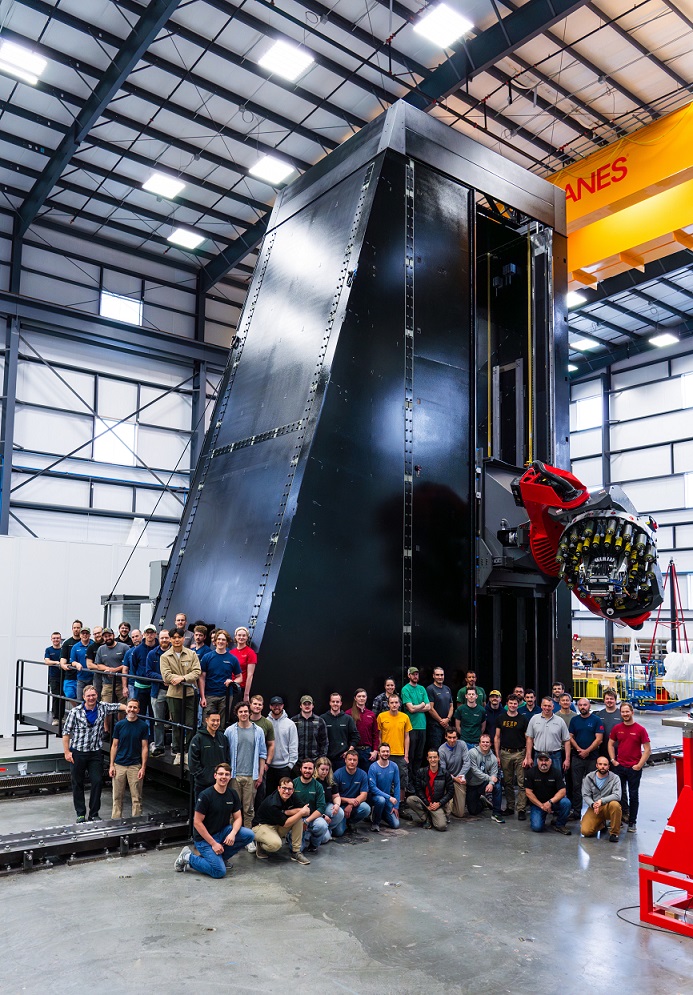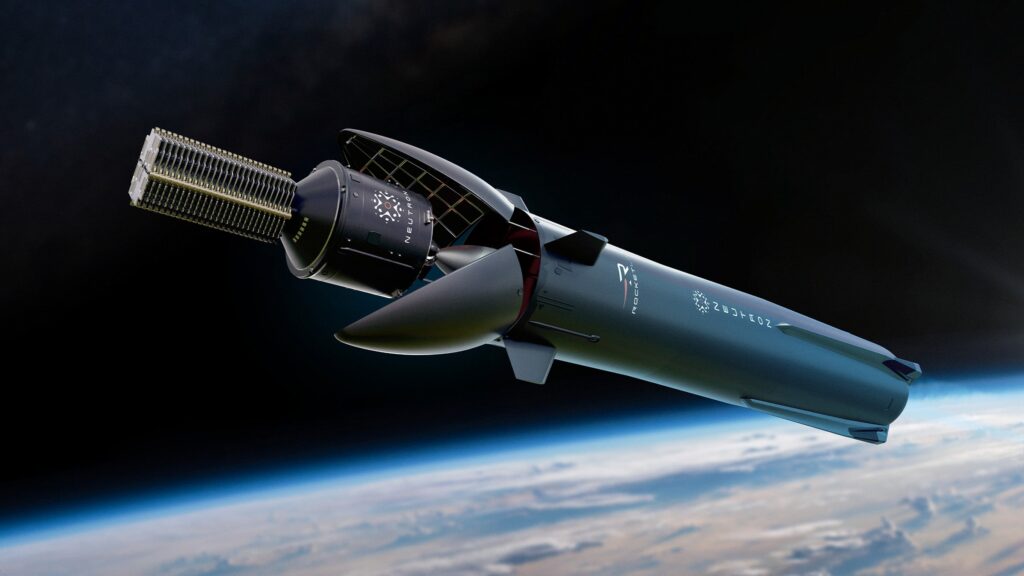Rocket Lab has begun installing a 90-ton 3D printer at their Maryland facility designed for automated carbon fiber layup. It will print components of the new Neutron rocket.

The 12-meter robotic machine was created on behalf of Electroimpact. It recently passed acceptance tests, after which Rocket Lab specialists began its installation.
Rocket Lab says the printer can be moved up to 30 meters in length and lay down a continuous carbon fiber composite material at a speed of 100 meters per minute. The machine is also equipped with a fully automated defect detection system. This provides additional assurance that critical parts of the launch vehicle structure can perform the task assigned to them.
The 3D printer will be used to print the Neutron rocket, whose debut is scheduled for 2025. A key feature of the new carrier is its head fairing, which is combined with a reusable first stage. It will not be dropped, but will unfold, releasing the second stage with payload, after which it will close again and the stage will return to Earth.

During the development of the Neutron, Rocket Lab engineers decided to rely on carbon composites in its design. They justified their choice because this material has exceptional strength at a low weight, which is ideal for reusable launches.
With the 3D printer, Rocket Lab expects to automate the production of all of Neutron’s large composite structures, including the 28-meter interstage section, 7-meter first stage tank, and 5-meter second stage tank. It is expected to save the company more than 150,000 production hours and reduce the process of building rocket components to one day. The machine will also be used to print Electron rocket first stages and spacecraft parts.
Recall that Rocket Lab was recently awarded a NASA contract to develop an alternative plan to deliver Martian soil samples to Earth.
Provided by Rocket Lab


